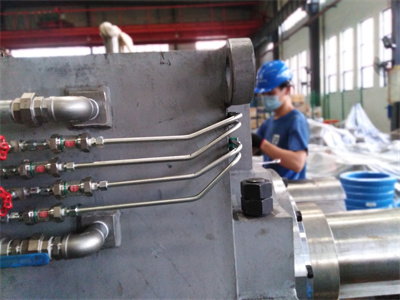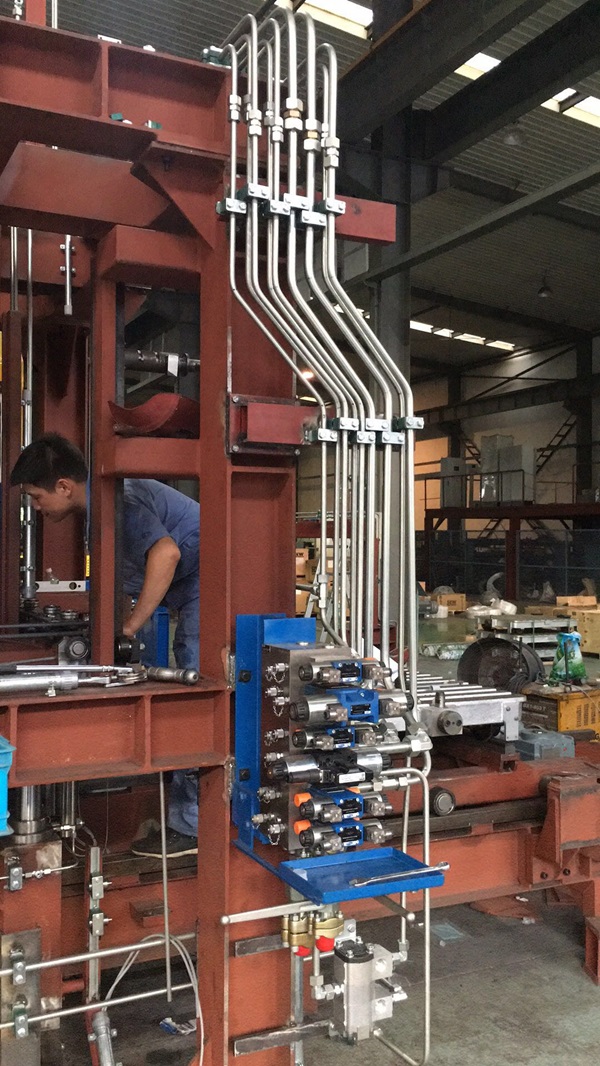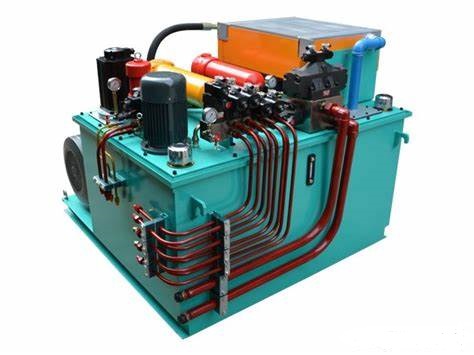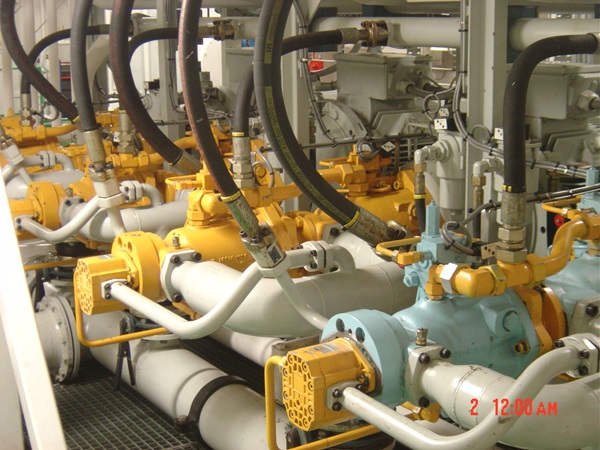Hydraulic press oil leakage is caused by many reasons. Common reasons are:
1. Aging of seals
The seals in the hydraulic press will age or damage as the use time increases, causing the hydraulic press to leak. The seals may be O-rings, oil seals, and piston seals.
2. Loose oil pipes
When the hydraulic press is working, due to vibration or improper use, the oil pipes are loose, resulting in oil leakage.
3. Too much oil
If too much oil is added to the hydraulic press, this will cause the system pressure to increase, resulting in oil leakage.
4. Failure of internal parts of the hydraulic press
If some parts inside the hydraulic press fail, such as valves or pumps, this will cause oil leakage in the system.
5. Poor quality of pipelines
Many times, hydraulic pipelines need to be repaired due to failures. However, the quality of the reinstalled pipelines is not good, and the pressure-bearing capacity is relatively low, which makes its service life too short. The hydraulic press will leak oil.
For hard oil pipes, poor quality is mainly manifested in: the thickness of the pipe wall being uneven, which reduces the bearing capacity of the oil pipe. For hoses, poor quality is mainly manifested in poor rubber quality, insufficient tension of the steel wire layer, uneven weaving, and insufficient load-bearing capacity. Therefore, under the strong impact of pressure oil, it is easy to cause pipeline damage and cause oil leakage.
6. The pipeline installation does not meet the requirements
1) The pipeline is poorly bent
When assembling the hard pipe, the pipeline should be bent according to the specified bending radius. Otherwise, the pipeline will produce different bending internal stresses, and oil leakage will occur under the action of oil pressure.
In addition, if the bending radius of the hard pipe is too small, the outer wall of the pipeline will gradually become thinner, and wrinkles will appear on the inner wall of the pipeline, causing internal stress in the bending part of the pipeline, and weakening its strength. Once a strong vibration or external high-pressure impact occurs, the pipeline will produce transverse cracks and leak oil. In addition, when installing the hose, if the bending radius does not meet the requirements or the hose is twisted, it will also cause the hose to break and leak oil.
2) The installation and fixation of the pipeline does not meet the requirements
The more common improper installation and fixation situations are as follows:
① When installing the oil pipe, many technicians forcibly install and configure it regardless of whether the length, angle, and thread of the pipeline are appropriate. As a result, the pipeline is deformed, installation stress is generated, and it is easy to damage the pipeline, reducing its strength. When fixing, if the rotation of the pipeline is not paid attention to during the tightening process of the bolts, the pipeline may be twisted or collide with other parts to generate friction, thereby shortening the service life of the pipeline.
② When fixing the clamp of the pipeline, if it is too loose, friction and vibration will be generated between the clamp and the pipeline. If it is too tight, the surface of the pipeline, especially the surface of the aluminum pipe, will be pinched or deformed, causing the pipeline to be damaged and leaking.
③ When tightening the pipeline joint, if the torque exceeds the specified value, the bell mouth of the joint will be broken, the thread will be pulled or disengaged, and an oil leakage accident will occur.
7. Hydraulic pipeline damage or aging
Based on my many years of work experience, as well as observation and analysis of hard hydraulic pipeline fractures, I found that most of the fractures of hard pipes are caused by fatigue, so there must be an alternating load on the pipeline. When the hydraulic system is running, the hydraulic pipeline is under high pressure. Due to the unstable pressure, alternating stress is generated, which leads to the combined effects of vibration effect, assembly, stress, etc., causing stress concentration in the hard pipe, fatigue fracture of the pipeline, and oil leakage.
For rubber pipes, aging, hardening and cracking will occur from high temperature, high pressure, severe bending and twisting, and finally cause the oil pipe to burst and oil leakage.
Solutions
For the oil leakage problem of the hydraulic press, the cause of the oil leakage should be determined first, and then the corresponding solution should be made for the specific problem.
(1) Replace the seals
When the seals in the hydraulic press are aged or damaged, they should be replaced in time. This can effectively solve the oil leakage problem. When replacing the seals, high-quality seals should be used to ensure long-term reliability.
(2) Fix the oil pipes
If the oil leakage problem is caused by the oil pipes, the corresponding oil pipes need to be fixed. When fixing the oil pipes, make sure they are tightened to the correct torque and use locking agents.
(3) Reduce the amount of oil
If the amount of oil is too much, the excess oil should be discharged to reduce the system pressure. Otherwise, the pressure will cause oil leakage problems. When discharging excess oil, care should be taken to safely dispose of the waste oil.
(4) Replace faulty parts
When certain parts inside the hydraulic press fail, these parts should be replaced in time. This can solve the system oil leakage problem. When replacing parts, original parts should be used to ensure stable operation.
Post time: Jul-18-2024










